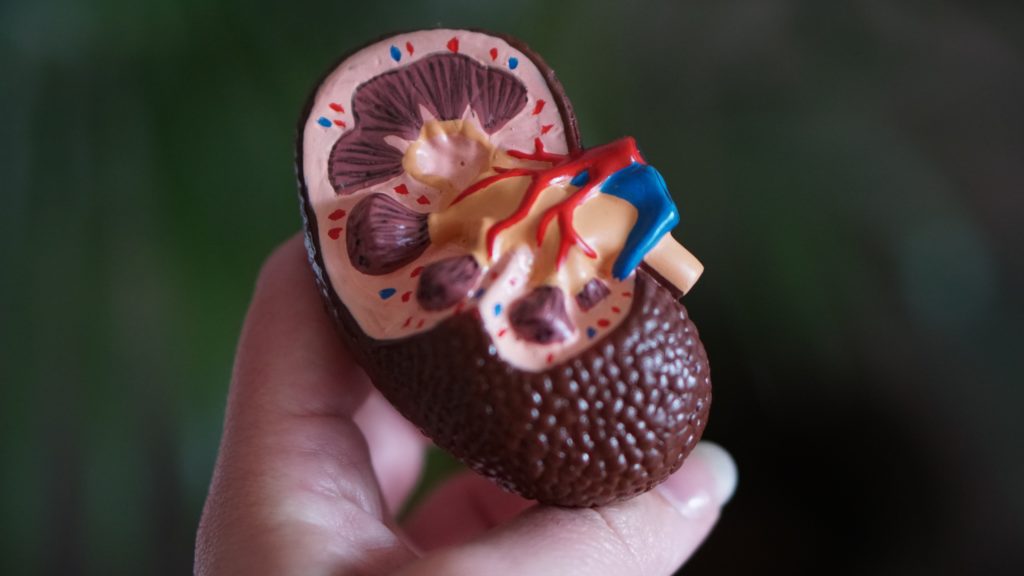The evolution of kidney cancer treatment, Dr Craig Gedye
It is exciting to be able to say kidney cancer treatment is now at a transition point. For a while treatment options for kidney cancer included surgery alone or with radiotherapy. We now have more to offer as a standalone treatment or in combination. Targeted therapies are now being used and target specific molecules in cells to block cell growth. We are now also well aware of the role immunotherapy plays in cancer treatment and are excited to be part of clinical trials for immunotherapy use in kidney cancer. Current trials will allow us to understand how this form of treatment will benefit patients with kidney cancer – both rare and common forms of kidney cancer.
Immunotherapy works to enhance the immune system of your body. Cytokines (proteins that activate the immune system) can be given intravenously or orally, and may shrink the cancer. We are eager to explore how immunotherapy can be integrated with existing therapies and current treatment combinations. Clinical trials in immunotherapy allow us to ask questions about this form of treatment with the goal of improving treatments and outcomes.

It will hopefully mean rather than searching for and trying anything in the hope that it works we can select a treatment that will actually lead to improvements and will work for everyone and not just the lucky few.
Developments have been happening in other cancer areas. This biology and precision medicine revolution is now slowly filtering through to kidney cancers. This has taken time as kidney cancer is a strange type of cancer. Unlike other cancer types, kidney cancer does not exhibit a lot of DNA mutations. But when there are one or two critical mutations strange cell growth will occur, the cells will be poorly regulated and metabolism is altered and becomes quite erratic. The clinical trials and ongoing research will allow us to ask questions about these mutations in kidney cancer and provide answers where currently we are still searching.
All the research being undertaken suggests we will witness an explosion of treatment activity leading to some people having very positive outcomes from their kidney cancer treatment. This should lead to a change in focus over the next few years when treating kidney cancer.
One clinical trial success story is the UNISoN study. This trial has now been recruiting patients with rare kidney cancer (‘non-clear cell’ cancer) for the past 12 months and is testing immune treatments in two different ways. Firstly, we are investigating how well one immune treatment (nivolumab) works alone. If this is unhelpful by itself, then patients can continue taking nivolumab but also add in a 2nd immune treatment (ipilimumab). This trial will demonstrate how many people will benefit from one drug alone, or from taking both treatments together.
“We hope UNISoN will provide further key pieces of evidence to understand how the immune system works in cancer treatment, and how we can harness that to offer patients with these rarer kidney cancers a unique therapeutic opportunity.’’
Ultimately, successful trials such as the UNISoN trial will allow us to stop asking if the kidney cancer is a common or rare type of cancer. We will hopefully understand if immunotherapy alone or in combination will work for all kidney cancer types. We might be able to predict who will be helped with current treatments and who will need a different approach.
Other trials are being planned to fill further gaps in knowledge and treatment. Eventually a greater array of treatment options will then benefit the patient, especially those with rare forms of cancer, and hopefully become part of the standard of care in Australia.
More than 3000 Australians are diagnosed with kidney cancer each year. It makes up about 2.5% of all cancers and is the 10th most common cancer in Australia. The risk of kidney cancer increases with age and is rare in people under 40 years. Men are almost twice as likely to be diagnosed with kidney cancer as women. So evolving kidney cancer trials are so important and should ultimately provide the ability to say there is a treatment that is right for you.
